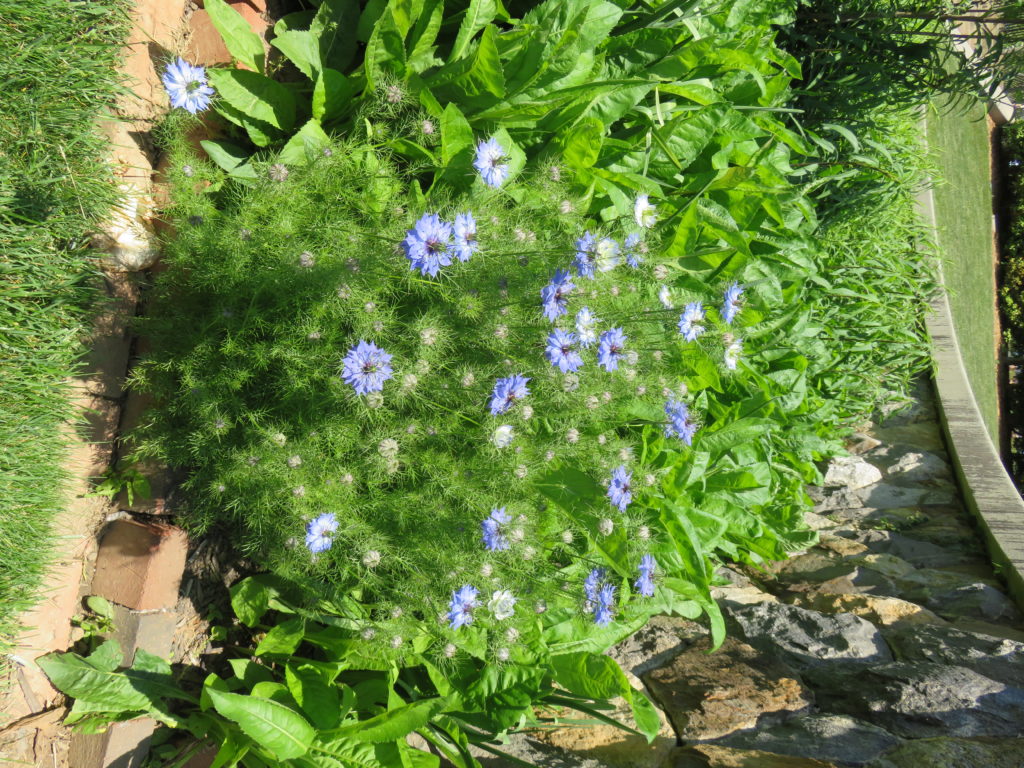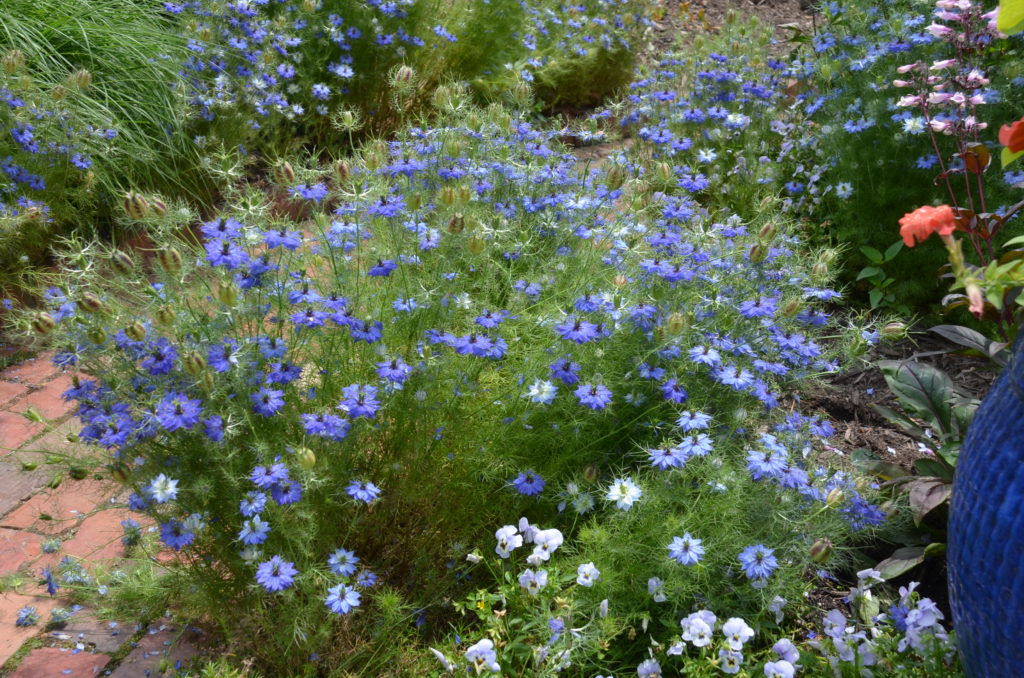
Love-in-a-mist (Nigella damascena) is a popular cool weather annual. It is also known by several other names including “ragged lady” or “devil in the bush”. Nigella belongs to the buttercup family (Ranunculaceae) and is native to southern Europe, North Africa and southwest Asia. In its natural habitat, nigella is found on neglected, damp patches of land.
Nigella is grown for its very different 1.5 inch wide blue flowers that sit atop stems lushly covered with fine lacy (“misty”) foliage. Plants typically grow to 1.5 to 2 feet tall (1.0 to 1.5 feet wide). In hot humid areas, plants bloom in late spring, but flower numbers significantly decline by midsummer as high temperatures become the norm. Flowers give way to unusual, egg-shaped, horned seed capsules (up to 1 inch diameter) that appear covered with bristles.
Nigella is easily grown in average, medium moisture, well-drained soils and in full sun. Sow seed in the garden as soon as the ground can be worked. In cool summer climates, additional sowings can be done every 3-4 weeks until mid-summer. Seeds are sown indoors about 6-8 weeks prior to last spring frost date, but plants dislike transplanting and results can be disappointing. Plants like consistent moisture and feed with 10-10-10 or equivalent fertilizer at a low to moderate rate .
To extend nigella’s blooming period, gardeners may reseed 2-3 times during the growing season. Deadheading spent flowers often extends the bloom period, but reduce development of the unique seed pods. The black seeds will self-seed freely in the garden.
I first saw nigella as part of a dried winter floral arrangement. Using their dried flower stems and seed capsules are popular among flower arrangers. Cultivars (some with double flowers) are available in white, pink, rose, violet and purple. Semi-double flowers come in shades ranging from pale sky blue to denim. ‘Miss Jekyll’ series include blue, ‘Alba’ (white), and ‘Dark Blue’. ‘Oxford Blues’ and ‘Moody Blues’ are two others.

No serious disease and pest problems trouble nigella.a

 Posted in
Posted in 
